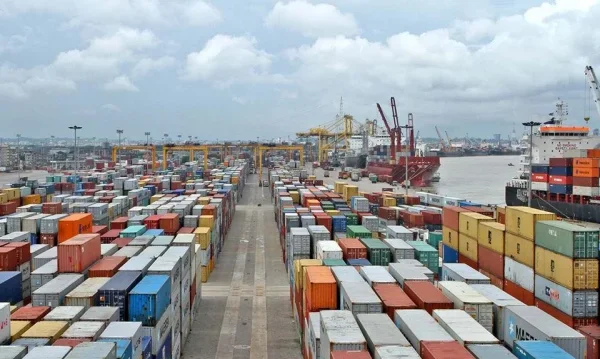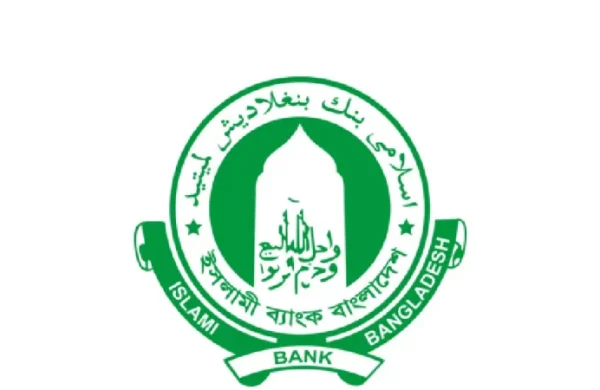Low imports, low confidence, low growth: Is Bangladesh in a slow-burning crisis?
- Update Time : Sunday, June 1, 2025

Staff Correspondent:
When Bangladesh’s annual imports plummet by $10 billion, the economic fallout extends far beyond that figure. Experts and business leaders warn that the true cost could be double, or even more, as the decline signals a deeper economic malaise.
Bangladesh’s imports are not merely for consumption; they are vital inputs for production. Imported capital machinery and raw materials form the backbone of the nation’s manufacturing and export sectors. A roll of imported cotton, combined with imported dyes and chemicals, becomes a readymade garment stitched by Bangladeshi hands, eventually exported for multiples of its input cost. Similarly, an imported machine powers a factory, employing thousands and fueling the country’s export engine. These aren’t just imports; they are engines of value creation.
IMPORTS FALL, FAR-REACHING CONSEQUENCES
Consequently, a significant drop in imports means assembly lines slow, export volumes shrink, and thousands of jobs and family incomes are jeopardised.
“A $10 billion fall in imports can translate into a $20 billion contraction in the economy,” explains Azam J Chowdhury, chairman of East Coast Group, one of Bangladesh’s largest conglomerates. “Every link in the supply chain – from financing to freight – has livelihoods tied to it.”
While the decline in imports over the past three fiscal years – from over $82 billion in FY22 to less than $71 billion in FY23, and just $63 billion in FY24 – might superficially suggest a reduced burden on the balance of payments, it reflects a far more troubling reality. This sustained downturn signals a slowdown in domestic demand, a retreat of private investment, a paralysis of industrial momentum, and, most critically, a freeze in job creation at a time when millions are entering the labour force.
SERIOUS RED FLAG
For an import-dependent economy like Bangladesh, this trend is a serious red flag. It’s reflected in the country’s GDP growth, which businesses and economists report slipped to 3.97% in FY25, the lowest since the Covid-19 pandemic in FY20.
The ripple effect is evident across various sectors. Insurers, heavily reliant on marine and fire insurance directly linked to imports and new industrial investments, are feeling the pinch. “There are no new investments, and no new business coming in. We’re surviving solely on policy renewals,” lamented the managing director and CEO of a leading insurance company.
BASF Bangladesh Ltd, a subsidiary of the German multinational chemical company BASF and a key supplier to Bangladesh’s denim, dyeing, plastic, packaging, and pharmaceutical sectors, reports sluggish client demand. “Overall, our business volume has remained relatively stable, but both value and profits have declined,” said Md Sazzadul Hassan, chairman and managing director of BASF Bangladesh.
SLOW PRIVATE SECTOR GROWTH
This concern is further mirrored by sluggish private sector credit growth. Credit to the private sector – the primary engine of Bangladesh’s economic activity and job creation – grew by only 7% in the first quarter of 2025, marking a decade-low.
Compounding these issues is persistently high inflation, which has hovered over 9% for the past three years. This continues to erode both consumers’ purchasing power and corporate sales. “Our sales have dropped by at least 10%. What else can a consumer do when prices keep rising? They simply cut back on consumption,” stated Mostafa Kamal, chairman and managing director of Meghna Group of Industries, a major importer and seller of food commodities.
Businesses are also grappling with a rising cost of doing business, primarily due to the sharp increase in bank borrowing costs. “Due to the increase in interest rate – from 9% to almost 14% – the cost of funds has gone up. Hence, the cost of doing business has gone up, putting pressure on margin,” BASF Bangladesh’s chairman.
Bangladesh Bank data shows the weighted average lending rate for large industries stood at 12.43% in March this year, while for SMEs it was 12.48% – up from 10.15% and 10.31%, respectively, a year earlier. This highlights a steep and rapid rise from an average lending rate below 8% as recently as September 2023.
Adding to the woes are high LC confirmation charges, which remain at 3.5-4% annually, following downgrades of Bangladesh and local banks by global rating agencies like Moody’s, Fitch, and S&P. A deputy managing director of a private bank leading the treasury division noted that while foreign banks’ credit limits have improved for some good local banks, LC confirmation charges remain high.
“BUSINESS CONFIDENCE AT ROCK BOTTOM”
Syed Mahbubur Rahman, CEO and MD of Mutual Trust Bank, expressed concerns beyond rising business costs and inflation, pointing to “growing uncertainty, the deteriorating law and order situation, and energy insecurity.” He emphasised that “business confidence has hit rock bottom.” Rahman noted that businesses are struggling with inadequate gas supplies, and operations are severely disrupted at the National Board of Revenue, ports, and the Secretariat. The veteran banker believes elections are essential to resolving Bangladesh’s current challenges.
Syed Mohammad Tanvir, managing director of Pacific Jeans, one of Bangladesh’s top five garment exporters, highlighted the potential impact of US tariffs on Bangladesh’s exports, which could further weaken the country’s export performance. Despite these challenges, Tanvir remains optimistic, provided energy needs are met. “Ensuring energy security is critical for the growth of our industries,” he asserted. Just last week, textile millers publicly voiced their frustration, claiming they are being “killed” by gas shortages, despite a 179% hike in gas prices in 2023 and an additional 33% increase this year.
FY26 BUDGET: A PATH TO ECONOMIC STABILITY?
Bangladesh’s interim government, helmed by Nobel laureate Professor Muhammad Yunus, is set to present the national budget for the fiscal year 2025-26 on Monday, amidst an economy grappling with significant challenges.
According to Dr KAS Murshid, former director general of the Bangladesh Institute of Development Studies (BIDS), the most pressing task is to achieve economic stabilisation. He noted improvements in the banking sector but underscored the need for further reforms.
Murshid elaborated on the fundamental obstacles hindering recovery: “Business and investor confidence is weak. We are struggling with energy constraints, worker protests, limited access to bank credit, and difficulties in opening Letters of Credit (LCs).” He stressed, “Our paramount goal is to restore economic health while vigilantly overseeing food production.”
Dr Fahmida Khatun, executive director of the Centre for Policy Dialogue (CPD), concurred, arguing that the FY2026 budget must place macroeconomic stability at its core. “The primary objective should be to curb inflation, especially in vital commodities such as food and fuel,” she stated.
Fahmida added that “controlling inflation is crucial not just for social stability, but also for restoring public confidence in the government’s economic stewardship.”


















